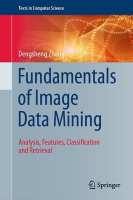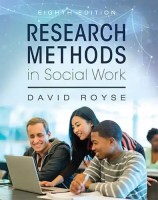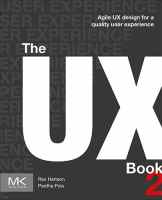2020 Textbook award-winning insight (Part 3): Contracts, editing, and marketing
 We recently reached out to winners of the 2020 TAA Textbook Awards and asked them to answer some questions about why they made the decision to write their textbook, strategies they used for successful writing, advice on contracts, editing, marketing, co-authoring, and more. We will be sharing their answers in a series of posts over the next few weeks.
We recently reached out to winners of the 2020 TAA Textbook Awards and asked them to answer some questions about why they made the decision to write their textbook, strategies they used for successful writing, advice on contracts, editing, marketing, co-authoring, and more. We will be sharing their answers in a series of posts over the next few weeks.
This third installment of the five-part series focuses on textbook contracts, working with editors, and marketing strategies.
What advice would you give to aspiring textbook authors?
 Talya Bauer, co-author of the 2020 Most Promising New Textbook Award winner, Human Resource Management: People, Data, and Analytics, 1e: “Don’t just write a book to write a book. Only approach it if you see a distinct need that you can address. Writing a book that no one uses is not useful nor would it be fun.”
Talya Bauer, co-author of the 2020 Most Promising New Textbook Award winner, Human Resource Management: People, Data, and Analytics, 1e: “Don’t just write a book to write a book. Only approach it if you see a distinct need that you can address. Writing a book that no one uses is not useful nor would it be fun.”
David Caughlin, co-author of the 2020 Most Promising New Textbook Award winner, Human Resource Management: People, Data, and Analytics, 1e: “Ideally, teach the course for which the textbook could ultimately be adopted, and do so while writing the textbook. This helped me keep the student perspective fresh in mind.”
David Clark, co-author of the 2020 Textbook Excellence Award winner, Molecular Biology, 3e: “It’s a long process. Don’t start unless you really intend to see it through. Talk to other authors who published books with the publisher you intend to go with.”
Jeffrey Conte, author of the 2020 Textbook Excellence Award winner, Work in the 21st Century: An Introduction to Industrial and Organizational Psychology, 6e: “Join TAA as it has extremely valuable resources for aspiring textbook authors!”
 Braja Das, co-author of the 2020 McGuffey Longevity Award winner, Principles of Foundation Engineering, 9e: “Manage your time. Be user friendly.”
Braja Das, co-author of the 2020 McGuffey Longevity Award winner, Principles of Foundation Engineering, 9e: “Manage your time. Be user friendly.”
David Hall, co-author of the 2020 Textbook Excellence Award winner, Oklahoma Studies Weekly – Our State, 7th Volume, 2e: “Learn the basics of what you can and can’t use. Font licenses, images, formatting, font styles for readability, etc. Knowing the basics can help solve a lot of headaches later.”
Rex Hartson, co-author of the 2020 Textbook Excellence Award winner, The UX Book: Agile UX Design for a Quality User Experience, 2e: “Be sure you are ready for the long haul. It might seem attractive to be writing a book now but after a couple years or more of very hard and detailed work, it can become a lot less exciting.”
 Paul Insel, co-author of the 2020 McGuffey Longevity Award winner, Core Concepts in Health, 16e: “Use a lawyer to help you negotiate a contract.”
Paul Insel, co-author of the 2020 McGuffey Longevity Award winner, Core Concepts in Health, 16e: “Use a lawyer to help you negotiate a contract.”
Ming Li, co-author of the 2020 McGuffey Longevity Award winner, An Introduction to Kolmogorov Complexity and Its Applications, 4e: “Be ready to spend a lot of time.”
Guy Marriage, author of the 2020 Most Promising New Textbook Award winner, Tall: the Design and Construction of High-Rise Architecture, 1e: “Just do it. Start. Write. Don’t prevaricate. And you know what? This Virus lock down time is the perfect time to write. What else have you got to do? Just write.”
Joyce Munsch, co-author of the 2020 Textbook Excellence Award winner, Child Development From Infancy to Adolescence: An Active Learning Approach, 2e: “Be sure you are ready to take on a big commitment like this. It is pretty daunting when you are staring at that first blank piece of paper and realize what you have agreed to do to translate your good idea into an actual textbook.”
 Jamie Pope, co-author of the 2020 Textbook Excellence Award winner, Nutrition for a Changing World, 2e: “Really review your contract – and ideally get someone with experience in textbook publishing to read your contract and address concerns. That contract dictates much down the road. Recognize that this is major commitment of your time and energy – Writing and publishing a textbook is like a pregnancy (ha) with the “delivery” not being the endpoint – you still have to raise it up and grow right along with it. :)”
Jamie Pope, co-author of the 2020 Textbook Excellence Award winner, Nutrition for a Changing World, 2e: “Really review your contract – and ideally get someone with experience in textbook publishing to read your contract and address concerns. That contract dictates much down the road. Recognize that this is major commitment of your time and energy – Writing and publishing a textbook is like a pregnancy (ha) with the “delivery” not being the endpoint – you still have to raise it up and grow right along with it. :)”
Cheryl Poth, author of the 2020 Most Promising New Textbook Award winner, Innovation in Mixed Methods Research, 1e: “Get a contract upfront – it provides motivation and plan around a sabbatical if possible.”
David Royse, author of the 2020 McGuffey Longevity Award winner, Research Methods in Social Work, 8e: “You must be able to devote regular, on-going time to the project. Without that self-discipline, you’ll never finish it.”
 Michael Solomon, author of the 2020 McGuffey Longevity Award winner, Consumer Behavior: Buying, Having and Being, 13e: “Pay a lawyer to help you! It may seem like a big investment, but you won’t be sorry.”
Michael Solomon, author of the 2020 McGuffey Longevity Award winner, Consumer Behavior: Buying, Having and Being, 13e: “Pay a lawyer to help you! It may seem like a big investment, but you won’t be sorry.”
Michael Sullivan, author of the 2020 McGuffey Longevity Award winner, Precalculus, 11e: “Don’t give up.”
Dengsheng Zhang, author of the 2020 Most Promising New Textbook Award winner, Fundamentals of Image Data Mining, 1e: “Ideas and writing are two different stories.”
What advice can you share about negotiating a textbook contract?
Bauer: “Read it carefully and understand what each point is really saying. That sounds like simple advice but many do not do it so they don’t understand what they are agreeing to when they sign.”
 Conte: “Seek advice from more experienced textbook authors and from relevant resources from TAA.”
Conte: “Seek advice from more experienced textbook authors and from relevant resources from TAA.”
Hartson: “Not much to say here. Our situation was more or less cut and dried. It’s nice to get a little income from royalties but writing textbooks is definitely not the way to get rich ☺.”
Insel: “Talk to other authors and ask to see their contracts.”
 Munsch: “Use as much of the advice available from TAA as you can. I wish we had known about this organization when we began. We have not made any big mistakes in our contract negotiations and our publisher has been great to work with, but it would have reduced some of our anxiety to know that we were on a good course.”
Munsch: “Use as much of the advice available from TAA as you can. I wish we had known about this organization when we began. We have not made any big mistakes in our contract negotiations and our publisher has been great to work with, but it would have reduced some of our anxiety to know that we were on a good course.”
Pope: “Ask lots of questions and have someone with experience in textbook contracts to review and address concerns. Negotiate!”
Poth: “Do your research.”
Solomon: “Again, let a good lawyer handle most of this. Be sure you have a good sense of the resources you’ll really need to succeed and insist on getting those in your contract. Don’t assume that the publisher has your best interests in mind!”
 Zhang: “Once you have a good book, negotiating a contract is naturally easy.”
Zhang: “Once you have a good book, negotiating a contract is naturally easy.”
What advice do you have for working with editors?
Bauer: “They are your partners, not your bosses. Give in on the little things but stand firm on big issues that might affect what you are trying to accomplish. What I found is that most issues are not big ones though.”
Caughlin: “Respond promptly to emails and make every effort to meet every deadline.”
 Clark: “Editors vary a lot. They also tend to turn over frequently. Make sure exactly what is the responsibility of the authors and what the publisher and editors will do. This is especially important as regards online materials. Make sure you keep a copy of everything yourself. Do not assume that the editor has everything you sent them. Things sometimes get lost when editors change over.”
Clark: “Editors vary a lot. They also tend to turn over frequently. Make sure exactly what is the responsibility of the authors and what the publisher and editors will do. This is especially important as regards online materials. Make sure you keep a copy of everything yourself. Do not assume that the editor has everything you sent them. Things sometimes get lost when editors change over.”
Conte: “Be collaborative and open to their input as editors have expertise that can be very beneficial to your book. If your publisher offers or suggests a developmental editor, authors should view that as a great opportunity to improve the writing and clarity of their textbook.”
Das: “Be patient with editors. Try to answer all queries.”
 Hall: “Learn a style guide and usage before you start.”
Hall: “Learn a style guide and usage before you start.”
Hartson: “Keep after them and follow through on every step. They probably have other books in their purview and must switch their attention back and forth. It’s up to you to make sure all the steps are done right.”
Insel: “Extend the deadlines.”
 Marriage: “My editors were great – seriously. Listen to them. They know what they are doing.”
Marriage: “My editors were great – seriously. Listen to them. They know what they are doing.”
Munsch: “Listen to them, but don’t hesitate to speak up for what you believe in. They know the market and the competition better than you, but you know your vision for your text better than anyone else. If you can’t communicate that to your editors, you won’t be able to communicate to anyone else. It really is a joint effort.”
Pope: “Listen – be flexible – realize they are working for the good of the book and you – get to know them as people beyond the book related work – do your part and expect the same from them – ask questions and for updates.”
Poth: “Keep them informed and be open to their guidance but also assertive in your needs.”
 Royse: “Be polite and considerate of their efforts, but don’t hesitate to point out any problems.”
Royse: “Be polite and considerate of their efforts, but don’t hesitate to point out any problems.”
Solomon: “Editors have to juggle a lot of issues, especially now when the industry is so disrupted. You need to be very proactive to be sure you get heard amidst all the racket.”
Zhang: “Find an editor who is enthusiastic on your book.”
What strategies do you use to market your book?
Bauer: “Writing a high-quality textbook is the first key to successful marketing.”
Caughlin: “I informally talk to colleagues at other universities about the book, and I mention it occasionally when I am giving a talk.”
 Conte: “I work closely with my publisher’s marketing staff, following their suggestions and making suggestions as well. I am very involved in the textbook’s website as that is an important access point for instructors.”
Conte: “I work closely with my publisher’s marketing staff, following their suggestions and making suggestions as well. I am very involved in the textbook’s website as that is an important access point for instructors.”
Hall: “Out of state sales people, specialized marketing team.”
Hartson: “Unfortunately there is little we could do as authors. And I’m afraid the publishers don’t do nearly as much as they used to. Also students are buying fewer and fewer textbooks, going instead to electronic versions, which they can often get free from institutional libraries.”
Insel: “Talk with the marketing and suggest they spend more money on focus groups.”
Munsch: “We have left this in the good hands of our publisher.”
 Pope: “Your book representatives are your front line sales force! Work with your marketing manager to identify ways to acquaint reps with you and your product. They are more likely to ‘sell’ your book if they know (and like) you. I record short podcasts with my reps in mind that also include a reference to how and where this is addressed in the book. They need unique ways to relate to faculty they call on. Building your personal brand also helps and can lead potential adopters your way. Be active in professional organizations in which potential adopters may also be involved – don’t ‘push’ your book, but opportunities will arise where you can share that you are a textbook author. I also share pdfs of certain chapters when appropriate that might just raise interest.”
Pope: “Your book representatives are your front line sales force! Work with your marketing manager to identify ways to acquaint reps with you and your product. They are more likely to ‘sell’ your book if they know (and like) you. I record short podcasts with my reps in mind that also include a reference to how and where this is addressed in the book. They need unique ways to relate to faculty they call on. Building your personal brand also helps and can lead potential adopters your way. Be active in professional organizations in which potential adopters may also be involved – don’t ‘push’ your book, but opportunities will arise where you can share that you are a textbook author. I also share pdfs of certain chapters when appropriate that might just raise interest.”
Poth: “I am still learning how to do this better but social media is a great platform.”
Solomon: “I go out of my way to be available to the salesforce and I maintain a high profile in my field.”
 Sullivan: “I leave marketing to the publisher. I do like to get involved in sales and often visit schools that are considering adopting or are using my textbooks.”
Sullivan: “I leave marketing to the publisher. I do like to get involved in sales and often visit schools that are considering adopting or are using my textbooks.”
Zhang: “Social media.”
Be sure to check out the advice in other articles in this series:
- 2020 Textbook award-winning insight (Part 1): Purpose, timeline, and results
- 2020 Textbook award-winning insight (Part 2): Strategies, environment, and lessons
- 2020 Textbook award-winning insight (Part 4): Co-authoring
- 2020 Textbook award-winning insight (Part 5): Longevity
Please note that all content on this site is copyrighted by the Textbook & Academic Authors Association (TAA). Individual articles may be reposted and/or printed in non-commercial publications provided you include the byline (if applicable), the entire article without alterations, and this copyright notice: “© 2026, Textbook & Academic Authors Association (TAA). Originally published on the TAA Blog, Abstract on [Date, Issue, Number].” A copy of the issue in which the article is reprinted, or a link to the blog or online site, should be mailed to Kim Pawlak 1710 Dondee Road, Madison, WI 53716 or emailed to Kim.Pawlak @taaonline.net.

